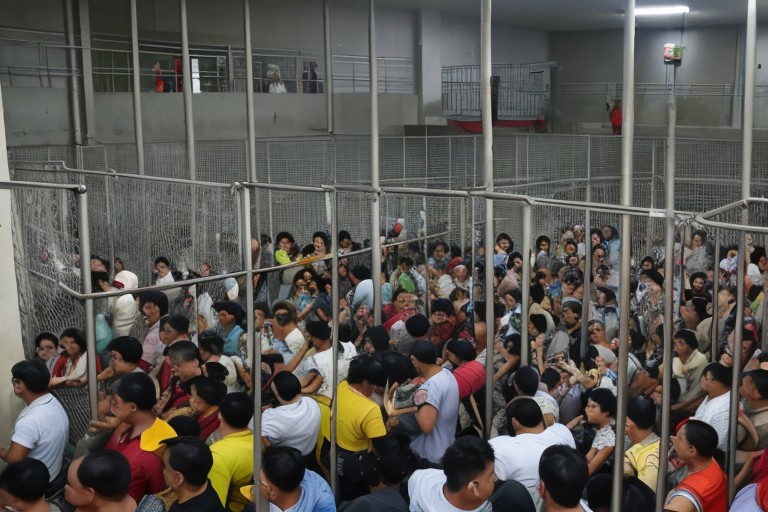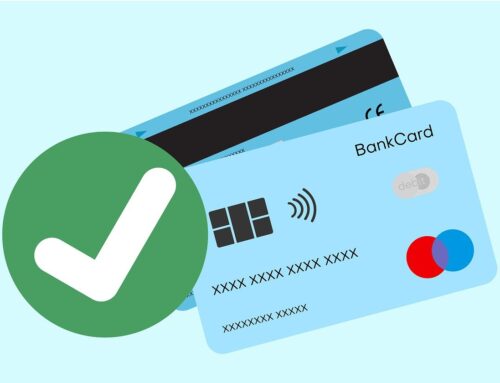
Overstay Your Philippines Visa? Don’t Panic! Here’s How to Fix It Legally
Overstayed Your Philippines Visa? Don’t Panic — Here’s What to Do
Maybe you lost track of time while enjoying island life, or maybe your plans changed unexpectedly. Whatever the reason, if you’ve overstayed your visa in the Philippines, don’t stress. You’re not the first, and there’s a legal way to fix it. Here’s how to handle it the right way by working directly with the Bureau of Immigration (BI).
Why Ignoring It Can Get You in Big Trouble
Trying to fly under the radar might sound tempting, but it’s not worth the risk. Here’s why ignoring your overstay could lead to serious consequences:
The Bureau of Immigration Has Eyes Everywhere
The BI works closely with local police and other authorities. A simple traffic stop or ID check can quickly expose your expired visa. If you’re caught, you could be brought straight to the immigration office—and that’s not a situation you want to be in.
They also coordinate with landlords and hotels. These providers are legally required to report foreigners staying with them. If your visa is expired, they might be obligated to inform the BI, which could trigger an investigation.
Anyone Can Report You (Even Without Meaning To)
Travel can be unpredictable. Maybe you have a disagreement with a friend or a misunderstanding with a vendor. In the Philippines, where politeness and respect are part of the culture, even a small outburst can attract unwanted attention.
If you draw attention and someone reports the incident, authorities might check your visa status. And if it’s expired, you’re facing fines, possible detention, and even the risk of being blacklisted from reentering the country.
The Bottom Line: Get in Front of It Early
Overstaying doesn’t make you a criminal—but ignoring it can cause real headaches. It’s much better to visit the BI voluntarily and take care of it. In many cases, you’ll just need to pay the appropriate fines and update your paperwork.
In the next section, we’ll walk you through how to visit the Bureau of Immigration and resolve your overstay situation the legal way.
Understanding Overstay Fines in the Philippines: What You Need to Know
Overstaying your visa in the Philippines can feel overwhelming—especially when you start thinking about the fines. But don’t worry, it’s manageable. Here’s what to expect when it comes to overstay penalties:
Fines Are Charged Per Day
Overstay fines are calculated based on the number of days you’ve stayed past your visa’s expiration. The daily rate can vary, but the longer you wait, the more you’ll pay. That’s why time really matters.
Act Fast to Keep Costs Low
The sooner you go to the Bureau of Immigration (BI), the better. Every day you wait adds to the cost. Don’t put it off—dealing with it quickly can save you money and stress.
Bring Cash Just in Case
Overstay fines are usually paid in Philippine Pesos. Some BI offices might accept card payments, but not all. To avoid delays, it’s a good idea to bring cash with you.
The BI Will Tell You the Final Amount
Once you’re at the BI office, an officer will assess your situation and calculate the total amount you owe. They’ll factor in your overstay length and any applicable processing fees.
Where to Get Updated Information
-
BI Website: Check immigration.gov.ph for current fee schedules and announcements.
-
Contact the BI: You can call or email the BI directly if you want to confirm the fine structure before visiting in person.
Taking Control: The Smart Way to Handle Your Overstay
Worried about your overstay? You’re not alone—and you’re not stuck. Here’s how to handle it the smart and legal way:
Be Proactive
Don’t wait to be caught. If your visa has expired, go to the BI voluntarily. It shows good faith and helps you avoid more serious consequences like detention or blacklisting.
Gather Your Documents
Before heading to the BI, get your paperwork in order. Bring:
-
Your valid passport
-
Any original visa documents
-
Proof of onward travel (if you have it)
-
Any documents explaining your overstay (like a medical note or job offer letter)
Having everything ready will make your visit smoother and faster.
Head to the BI Office Yourself
Once your documents are ready, visit the Bureau of Immigration (BI) either at the main office in Manila or at the nearest regional branch. This shows responsibility and good faith on your part. Avoid shortcuts or shady “fixers”—their solutions might backfire or even make things worse.
Be Ready to Pay the Fines
Overstay fines are based on how many days you’ve stayed beyond your visa’s validity. The longer you wait, the higher the cost. It’s best to settle things early. Bring enough Philippine Pesos (cash), as not all BI offices accept credit cards.
Consider Professional Help if Needed
For more complicated cases, hiring an immigration lawyer might be a smart move. Here’s how they can help:
-
Negotiate Fines: In some cases, a lawyer may help reduce your total penalty.
-
Handle Complex Situations: If paperwork is missing or your case involves unusual circumstances, legal guidance can ensure things go smoothly.
-
Avoid Blacklisting: A lawyer can help make sure your record stays clean, so you can return to the Philippines in the future.
Always be honest and clear about your situation. Transparency helps build trust with immigration officials.
Step-by-Step: How to Handle Your Overstay with the BI
Ready to face the situation head-on? Here’s a simple guide to help you navigate the Bureau of Immigration process:
1. Find the Right BI Office
The Philippines has a central BI office and regional locations nationwide.
-
Main Office: Visit the Bureau of Immigration at Intramuros, Manila.
-
Regional Offices: Use the BI website to find contact details for offices outside of Manila.
Tip: If you’re unsure where to go, contact the BI directly by phone or email for advice.
2. Bring the Right Documents
Prepare the following before your visit:
-
Your valid passport
-
Original visa or extension documents
-
Proof of onward travel (if available)
-
Documents that explain your overstay (such as medical records or job offers)
Bonus Tip: Dress neatly and show up early to avoid long lines.
3. Get a Queue Number
Once you arrive at the BI office, go to the appropriate section and grab a queue number for overstay concerns.
4. Wait for Your Turn
When your number is called, approach the counter and explain your situation politely. Honesty is key—be clear about how long you overstayed and why.
5. Settle the Fines
The BI officer will review your case and calculate the fines. You’ll likely need to pay in cash, so come prepared.
Tip: Double-check in advance if that office accepts card payments or bank transfers.
6. Extension or Departure Order
Depending on your case, the officer will provide one of two outcomes:
-
Visa Extension: If you have a valid reason, you might be granted an extension for an additional fee.
-
Departure Order: If an extension isn’t possible, they’ll give you a set time frame to leave the country legally.
Always follow the BI’s instructions exactly.
7. (Optional) Legal Advice
If you’re dealing with unusual circumstances—like missing documents or past issues—consider talking to an immigration lawyer. They can walk you through the process and help protect your long-term travel rights.
Take Control and Move Forward
Dealing with an overstay isn’t the end of the world. By facing the issue directly, bringing the right paperwork, and following the proper steps, you can resolve things legally and responsibly. Once it’s all taken care of, you’ll be free to travel again—this time with everything in order.
Consider Professional Help: Why an Immigration Lawyer Can Be a Smart Move
You can handle an overstay on your own by going directly to the Bureau of Immigration (BI), but in some cases, getting help from an immigration lawyer can make a big difference. Here’s why professional guidance might be worth it:
1. Get Expert Advice You Can Trust
Immigration rules aren’t always easy to understand—and they change more often than you might think. A good immigration lawyer stays up to date and can explain everything clearly. Plus, they’ll guide you step-by-step through a process that can be confusing and stressful if you go it alone.
2. Lower the Cost of Fines
Overstay fines can add up quickly, especially if you’ve been in the country without a valid visa for a while. A lawyer may be able to negotiate a reduced fine or present your case in a way that leads to more lenient penalties.
3. Avoid Getting Blacklisted
One of the biggest concerns with overstaying is the risk of being blacklisted—which could prevent you from coming back to the Philippines. A lawyer can help protect your record and show that you’re making a good faith effort to resolve the situation.
4. Navigate Special Circumstances
Was your overstay caused by a medical emergency? A canceled flight? Personal hardship? An experienced lawyer knows how to present these situations to immigration officers in the best possible light—and may help you receive a more favorable outcome.
5. Save Time and Avoid Mistakes
From filling out forms to making sure you’re in the right office, a lawyer can help you move through the process faster. They’ll make sure your documents are complete and accurate so you’re not turned away or delayed.
6. Plan Ahead for Future Visits
If you plan to return to the Philippines, a lawyer can help you stay in good standing with immigration. They’ll advise you on how to avoid future issues and what steps to take to keep your travel options open.
The Bottom Line: Take a Deep Breath and Fix It the Right Way
Overstaying your visa in the Philippines can feel overwhelming—but it doesn’t have to be. Here’s what matters most:
-
Don’t panic: Ignoring the problem will only make it worse.
-
Take action quickly: The sooner you handle it, the fewer penalties you’ll face.
-
Go to the Bureau of Immigration: Be honest, bring your documents, and explain your situation clearly.
-
Prepare to pay fines: You’ll likely have to pay, but being proactive can help reduce the amount.
-
Consider hiring a lawyer: If things feel too complicated, having a professional by your side can make the process smoother and less stressful.
By following these steps and approaching the BI with honesty and respect, you can resolve your overstay and get back on track to enjoying the beauty of the Philippines – legally!

















